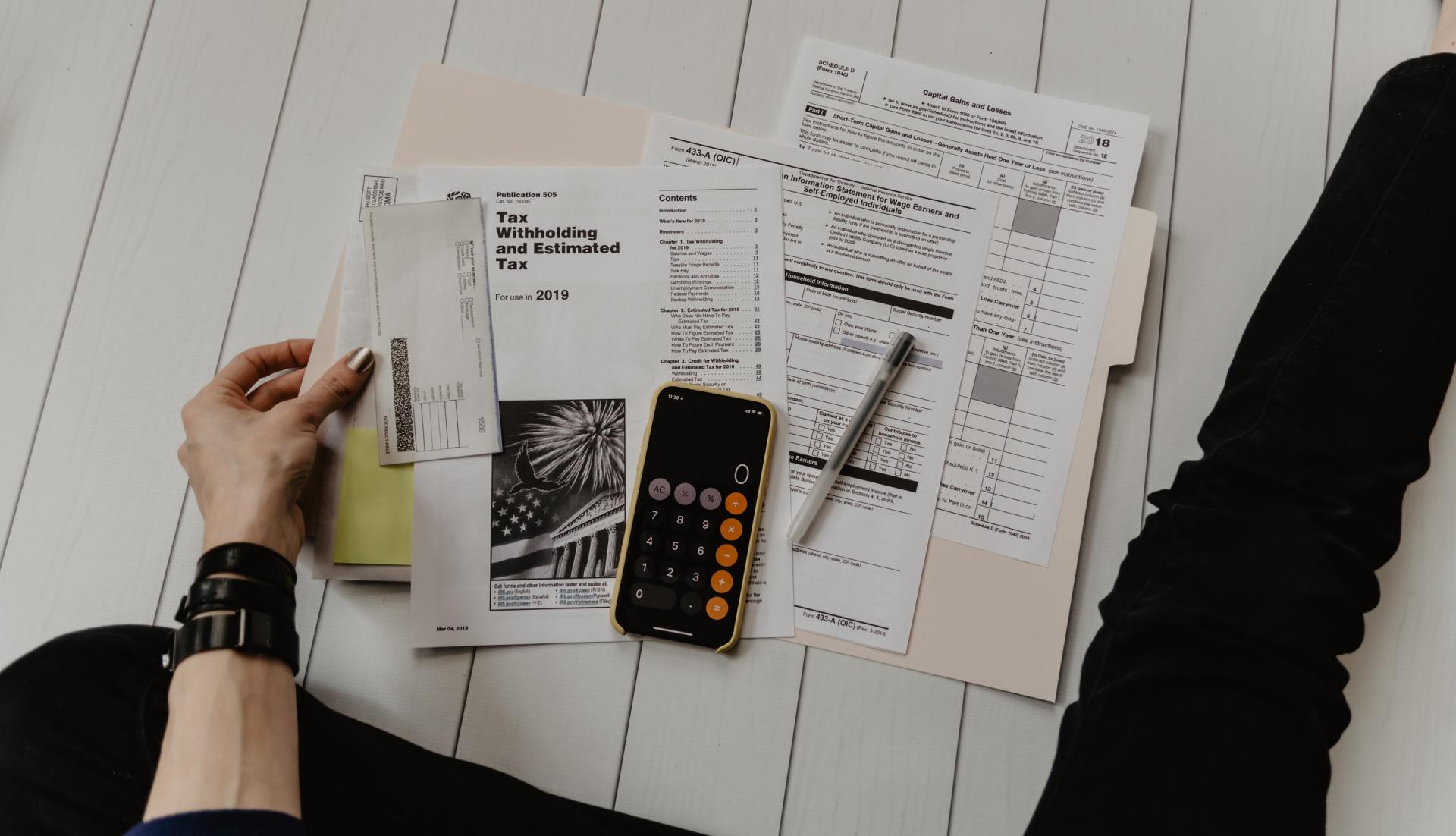9 THINGS YOUR TAX PREPARER MAY NOT WANT YOU TO KNOW
October 9, 2021
Tax preparers are great must-haves, especially professional tax preparers. However, never forget they are human and may have their lips sealed on some stuff.
Don’t get me wrong.
No
professional tax preparer will keep a secret about what will harm you or put you in a financial mess. Nevertheless, they are not obligated to tell you everything about everything.
Note:
A tax preparer is someone who prepares, computes, and files income tax returns on behalf of individuals or businesses. They may be non-credentialed or credentialed; third-party organizations may issue the credentials.
Professionals such as Certified Public Accountants (CPAs), Enrolled Agents (EAs), and Attorneys are also referred to as tax preparers.
It is good to hire a professional who is an expert in preparing your income tax return. Professionals such as EAs focus only on tax. A CPA could also do a great job even though their primary focus is on accounting.
Below are nine things your tax preparer may not want you to know.
1. It is not always about credentials:
Your tax preparer may not want you to know that fancy credentials are not always required to practice as a tax preparer. An up-to-date Preparer Tax Identification Number (PTIN) is all that is needed to be a tax preparer. Education and experience make a good tax preparer. Sadly, PTIN doesn't bestow expertise on anyone. In reality, any jack can have a PTIN! Your tax preparer may have the PTIN, but are they educated and experienced in tax preparation filing? While scouting for a tax preparer, ensure you deal with certified and experienced tax professionals.
2. Certified Public Accountant is not the same as Tax Preparer:
This is a common misconception that most people mix up. Being a CPA doesn't mean they are professional in income tax. CPA is a large umbrella for accounting professionals. While most CPAs are familiar with a corporate account, they may not be as experienced with personal taxes. A professional who majors in tax would be a better fit.
Some tax preparers may specialize in international tax and know little about your specific tax needs. My advice for you is to
hire a tax preparer with experience in individual income or area of your tax needs. An EA or CPA will be ideal.
3. You are not 'peculiar' to your tax preparer:
You are unique in your way, but so are the hundreds (or thousands) of other customers that your tax preparer service. This is a truth that most people shy away from. Your tax preparer may deliver an excellent personalized service to you, but that is just about it. The saying that "no one can care for you more than you can care for yourself" applies here. Except on some unusual occasions, you may not get any special or preferential treatment when it comes to your tax preparation.
4. Your tax preparer isn't your private filing cabinet:
It is no doubt that your tax preparer has other clients. Each client has a set of files and folders for their tax records. Keeping all these files for all clients is a costly venture and a herculean task. Your tax preparer can only keep your tax file for a limited time after which it is disposed of. There is no law stopping your tax preparer from doing this. The decision solely rests on your tax preparer's policy and availability of space. Knowing this policy upfront will help you decide how to keep your tax records.
5. You may be paying for their mistakes:
Your tax preparer is human, and every human is prone to errors. And you might be paying for the mistake of your tax preparer. There are three primary ways you may be paying- penalties, interest, or additional tax owned. In most cases, penalties and interest could be covered by your tax preparer, while additional tax will be your responsibility. But this depends on what the contract between you and your tax preparer covers. You have to read between the lines before you agree to a contract. It would help if you also examined your tax returns thoroughly before you sign.
6. Your tax preparer didn't prepare your tax returns:
Often, your tax preparer doesn't prepare your tax return; a junior associate does it. Your tax preparer or a manager only reviews the return before showing you. This is usually the case because of the sheer workload volume, so your tax return is prepared in stages. This is termed the tiered approach, and it helps reduce mistakes as the reviewer can spot the error made by the preparer (though some still slip past the reviewer). The best thing is for you to know that your tax preparer spends enough time reviewing your tax returns.
7. Your tax preparer may outsource your tax preparation:
As outsourcing has become the order of the day, tax preparers are not left out. Your tax preparer may outsource the whole or some part of your tax return preparation to other professionals. This could be a colleague in the same organization, a tax preparer in another organization, or a professional in another state (or country, or continent). This involves sharing your personal information, which could cross not only the State but international boundaries. Ensure you know what and by what degree your information is disclosed to a third party.
8. Your tax preparation may not get you the lowest tax bills:
This is true, especially for tax preparers that want to play it safe. Your tax preparer may play it safe by following only tried and trusted principles without stepping out of their comfort zone for potentially advantageous exceptions. But to help you, you can push your tax preparers to be more aggressive on the research for ways to minimize your tax bills. You must also be ready to foot the bill as this is more expensive.
9. You might be limiting your tax preparer's performance:
"The customer is always right" is a fallacy when consulting an expert. Your tax preparer may not tell you this, but you might be restraining him from performing optimally.
You might be responsible for substandard performance if you give wrong or inaccurate information to your preparer. Fear of sending a steep hourly bill can also limit your tax preparer, and he may not do due diligence to look for ways to save you on taxes. Ensure you give your preparer enough room and whatever he needs to give you the best performance.
There you go with nine things your tax preparer may not want you to know.
Trust you would take note and put this in mind while hiring and dealing with a tax preparer.

As a small business owner, accounting and bookkeeping are one of the most critical aspects of your business that you should not joke with or try to perform averagely at. It should be a top priority for you. This is because it will be impossible for you to effectively monitor your business's performance if you do not organize your financial information. If the finances are falling short, the organization will definitely be affected. Moreover, a report has it that one of the top reasons why small businesses fail to survive is a lack of proper accounting and bookkeeping, but don’t worry Zanda Tax always helps their clients so that they can do their business easily which makes us genuine company for the Best Bookkeeping services in Texas . You may think it is cost-effective to perform this service yourself or keep it in-house. The truth is, running a small business is usually challenging. There are just so many things to worry about, and accounting and bookkeeping in themselves are overwhelming. Of course, you cannot juggle all these together and have a good result. One or two aspects will significantly suffer for it. Without mincing words, regardless of how small you consider your business to be, you should allow a professional to handle the accounting and bookkeeping aspects. There are numerous benefits associated with doing this, and some of them include: 1. You will understand your financial situation: The lifeline of every business is money. That is, for any business to survive, there must be an inflow and an outflow. No matter how small your business is, cash flow is constant; hence you need to understand where the cash is coming from, how it is spent, and what you have as savings for your business. A proper accounting and bookkeeping structure afford you this understanding. A professional accountant will not only give you a clear and precise insight into your financial situation but also provide you with a microscopic detail on every cent in your business. 2. Effective management of cash: Another benefit that a proper accounting and bookkeeping structure gives you is the effective management of money with these for us it doesn’t matter how big a firm is Zanda Tax offers their Accounting and Bookkeeping Services for Small Businesses to big enterprises. The good thing about having effective cash management in place is the ability to track customers' and suppliers' accounts, i.e., monitor deposits and payments, and create budgets. You won't just spend money on impulse because there's an account for every money spent or received. This will help you ensure that you do not run out of cash; pay your staff on time, and have peace of mind. 3. Better business decision: You, without doubt, will be able to make excellent business decisions when your financial information is organized and you understand your cash flow. 4. Business Analysis: An efficient accounting and bookkeeping system allows you to analyze your business and know how it is performing. With this, you will know which aspect of your business is performing well and which is lagging. 5. Plan for the future: Understanding your business performance based on analysis will help you make good plans. Also, based on past results, you can project earnings/losses and work on better future decisions. 6. Reduce risks: Having an organized report of your financial statement will help you reduce numerous risks, which include: internal fraud, cashflow shortage, losses (e.g., spending too much on ineffective marketing), tax audits, etc. Once again, having a team member handle your accounting and bookkeeping system may not be ideal because they are prone to commit errors that may be costly for the business. However, outsourcing this to a company allows a group of professionals to work on it will minimize errors and reduce risks generally and the best part is Zanda Tax offers the Best Accounting & Bookkeeping Services in Houston . 7. Tax compliance: An excellent accounting and bookkeeping system allows you to pay your taxes- income taxes, sales taxes, payroll taxes, and worker's compensation without breaking a sweat. Moreover, when you have a professional who is conversant with the ever-changing tax code handle this for you, you can be sure that you are not breaking any tax rules that can put you in trouble with the IRS or ruin your business. 8. Easier audits: Interestingly, the IRS does not only audit defaulters; they also choose at random for audit. Therefore, having a professional accounting and bookkeeping system for your business will make things easier for you if you receive an audit invitation from the IRS. 9. Tax prediction: If you consistently monitor your finances and you are conversant with your tax returns over the years, it will be easier to predict an estimate of what you will be billed in the coming tax season. 10. Business advice: A good understanding of your business finances will make you seek help when things get overwhelming; you won't just be operating in darkness. Hiring professional accounting and bookkeeping services will expose you to a lot of expert knowledge, experience, and suggestions. 11. A good relationship with banks and investors: A detailed, transparent and up-to-date financial report will not only put you in a good relationship with your bank but will also spike up the interest of investors in your business. Investors will be confident that you know what you are doing and become willing to take a chance on your business. 12. Saves you time: Time is a very important factor in life and affect everything we do as humans. Neglecting the accounting and bookkeeping of your business will cost you a lot of time and stress later on, and this neglect can only happen if you decided to take the responsibility all by yourself. However, outsourcing it to professionals will afford you the time to effectively do other things in your business, spend time with your family and also do the things you love. Zanda Tax understand this & that’s why we provides the Best Accounting services in Houston . In summary, there are a lot of benefits that an efficient and consistent accounting and bookkeeping service gives to your business. It is not more cost-effective ignoring the role of a professional accountant in helping you do this; instead, it may end up being costly. Make the sacrifice of getting professionals to work with you on this today, and I promise you will be grateful you did.

With the future of Social Security uncertain and company pension plans being cut back, careful management of your 401(k) becomes very important. Here are some basic guidelines to help you make the most of your 401(k) investments: Start early. A 25-year-old employee who saves $300 a month will accumulate over $1 million by age 65 (assuming an 8% annual rate of return). By waiting ten years and still investing the same amount ($300 a month), that employee would accumulate less than $500,000 by age 65. Be willing to take some risks. Over the long term, you aren't likely to beat inflation by placing all your money in ultra-conservative investments. If you are more than five years from retirement, consider putting at least a portion of your money into stock funds. A fund that mirrors the overall stock market, for example, is likely to beat inflation. Don't invest too much in your own company's stock. Even if you're confident that your company will be profitable for years to come, it's seldom a good idea to tie your financial future to one firm. In some cases, employees are locked into their employer's stock, but if you have a choice, consider diversifying your 401(k) funds. Don't be quick to borrow from your 401(k). Although you can repay principal and interest to yourself, dipping into your 401(k) will reduce its earning power. If it's available, a home-equity loan may be a better alternative, especially since the interest is generally tax-deductible. Don't raid your 401(k) when you change jobs. Resist the temptation to deplete your retirement savings when you change employers. If it's allowed, leave what you have in your old plan or roll the money into your new employer's 401(k). Another option is to roll the funds into an IRA. Review your portfolio at least once a year. If you've decided to keep 60% of your 401(k) in stock funds, a bull market can push the stock portion of your portfolio beyond the limits you've set. By readjusting your portfolio annually, you'll maintain the desired mix.

If you are eligible for the Premium Tax Credit you can decide to take it now based on your estimated income or take it later when you file your tax return. Who does this impact and what should you do? What is the Credit and who is eligible? Topline: If you have health insurance available from your employer, this credit is not for you. If, on the other hand, you are self-employed, your employer recently provided you a notice they are moving health insurance coverage to the “exchange or marketplace”, or you currently do not have health insurance then this information is important to understand. Open enrollment for health insurance plans through the Marketplace runs from November 1st through December 15th. If you are eligible and enroll in one of these plans through the Insurance Marketplace you may be eligible to have your premium reduced by the new Premium Tax Credit. To be eligible for the Premium Tax Credit you must; buy your health insurance through the new Health Insurance Marketplace (state exchanges) be ineligible for health insurance coverage through an employer or through other government programs not be claimed as a dependent on someone else’s tax return if married, file a joint tax return meet certain income requirements Take it now or claim it later? One of the tricky decisions you’ll make if enrolling for health insurance through the Marketplace is deciding to take the Premium Tax Credit to reduce your monthly health insurance premium payments or wait and receive the tax credit when you file your tax return. Here are some tips: Predictable income? If you can accurately predict your income and number of dependents consider applying an estimated credit now to reduce your monthly health insurance cost. Predictable family situation? If you know the number of dependents you will have and your status (married, single, etc.) in addition to your income consider applying the credit during the year. If your family situation changes during the year you can always update your profile in the plan. Understand the downside. If you misrepresent your income and it impacts your eligibility for the Premium Tax Credit you will have to repay the credit on your tax return. This could become a real financial hardship. Middle ground? Consider estimating your income, but make it slightly higher than you anticipate. This way your monthly health insurance premium will be a bit higher, but you may also receive a larger refund at the end of the year. Remember, if you do not have health insurance you may be subject to new penalties payable when you file your tax return.



